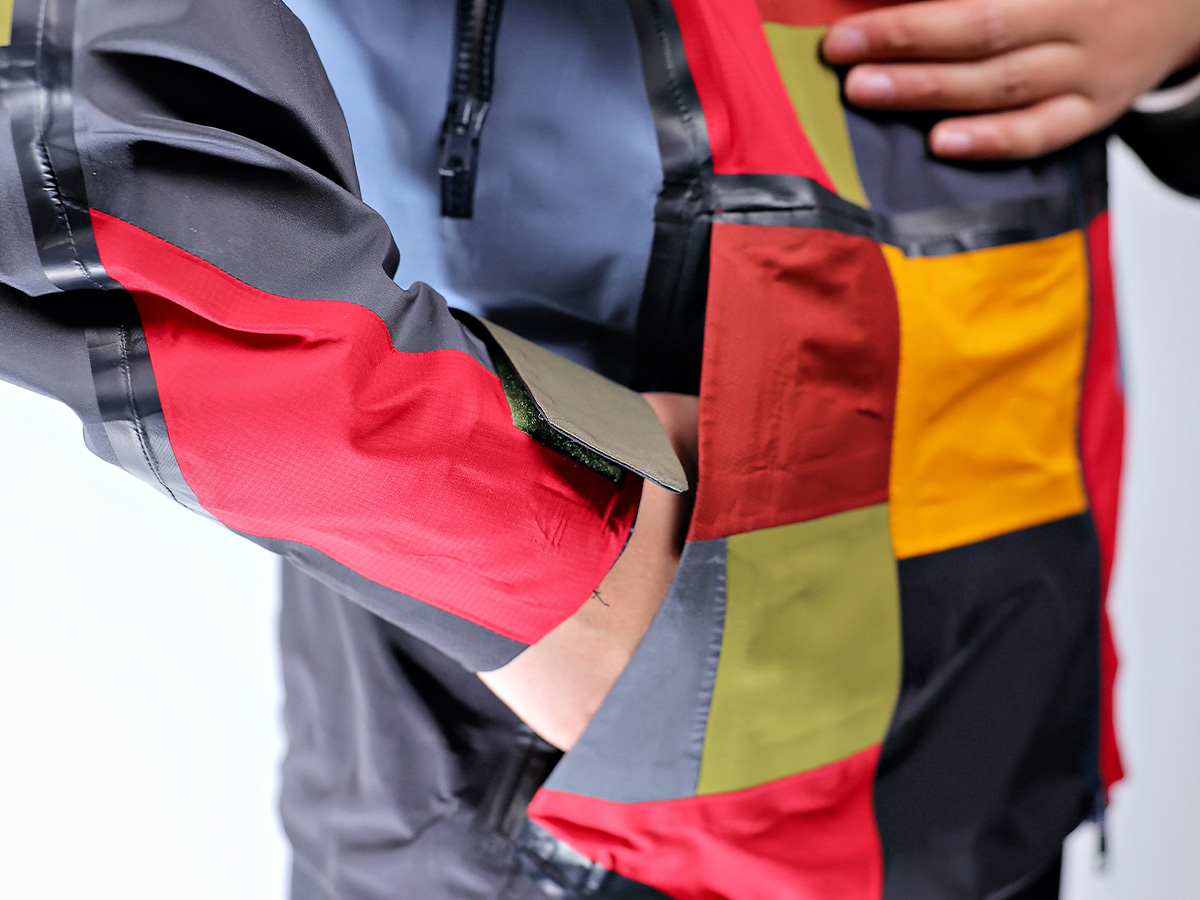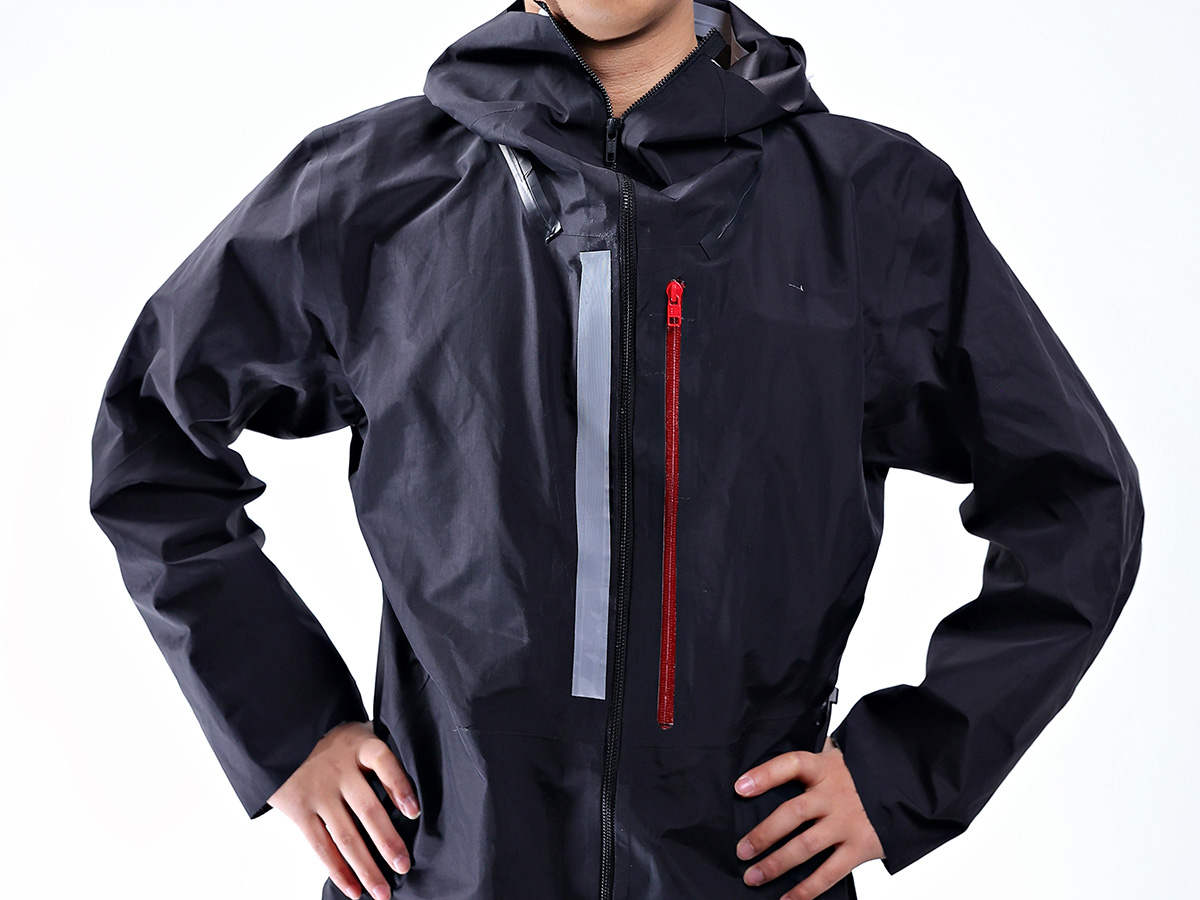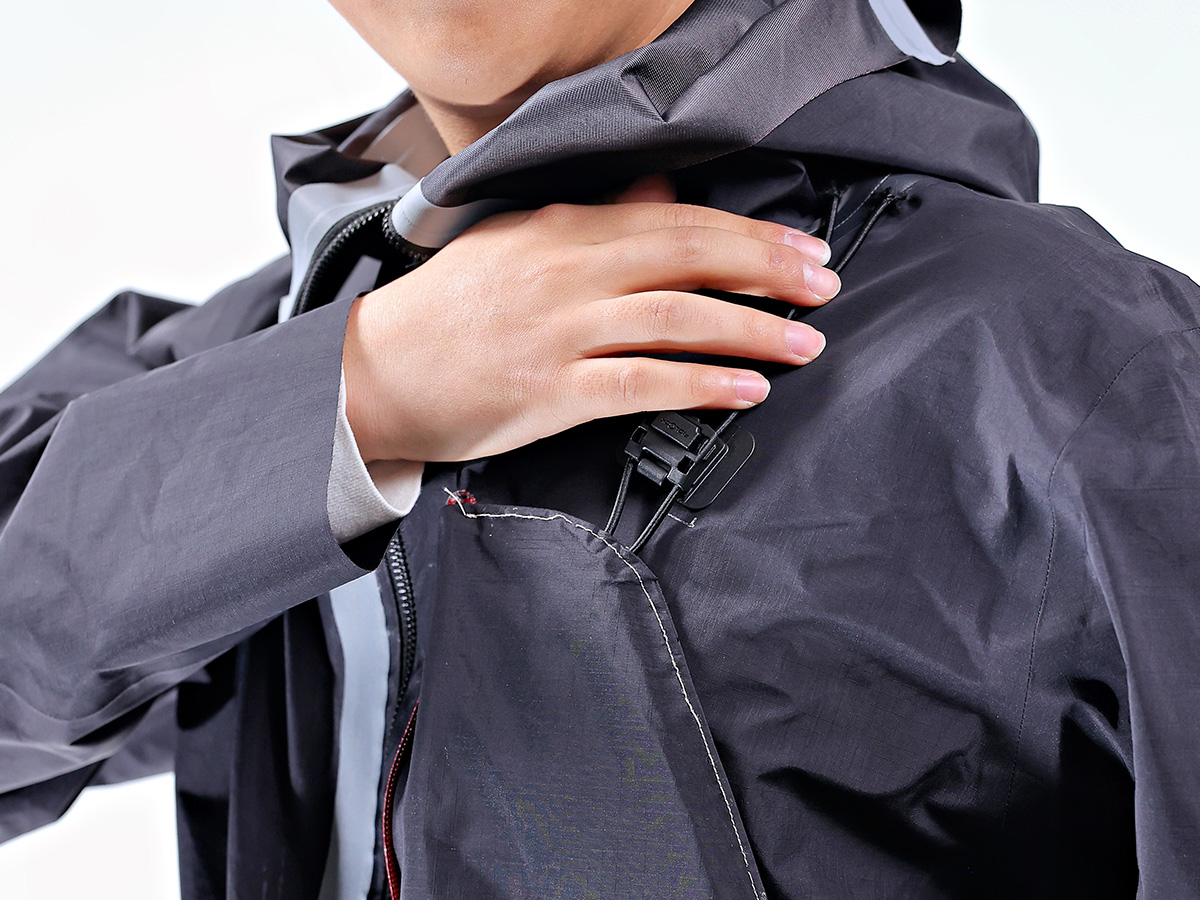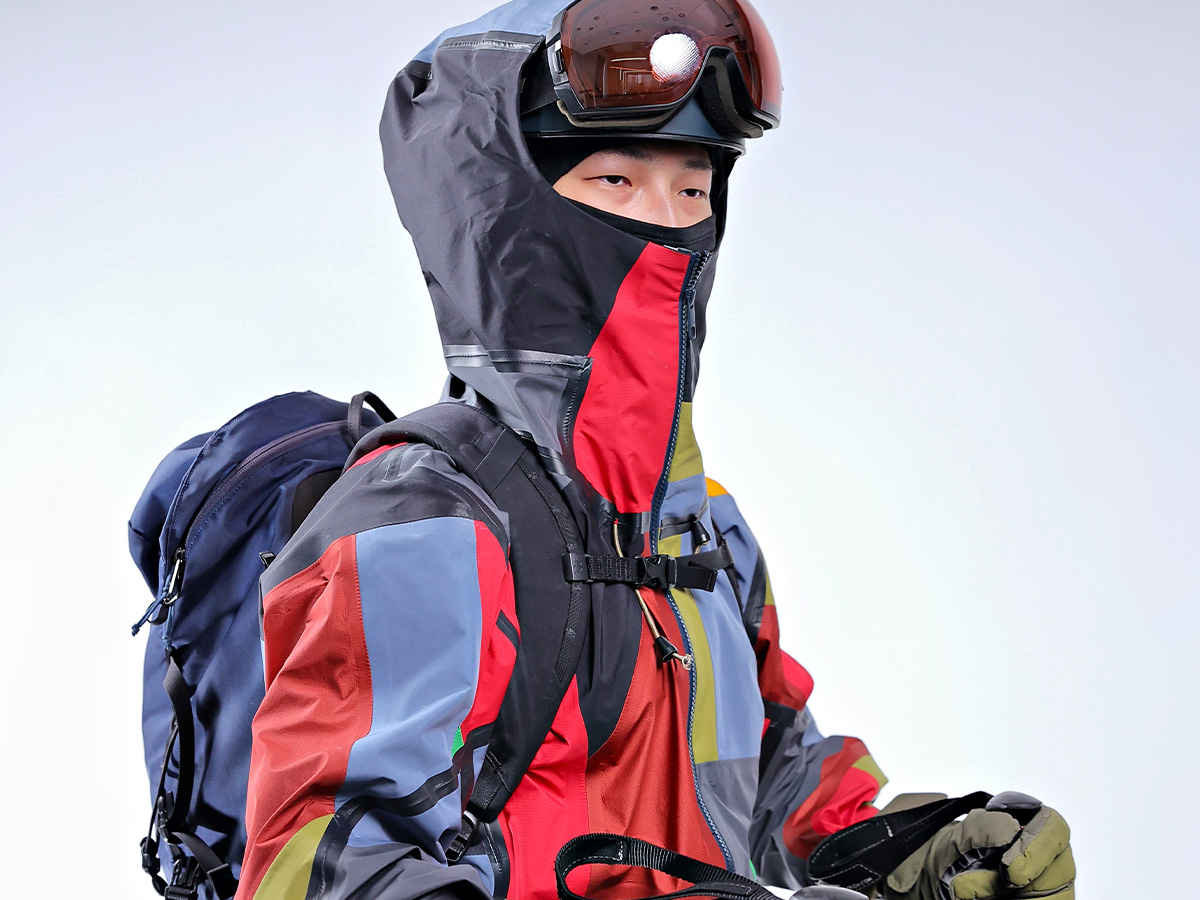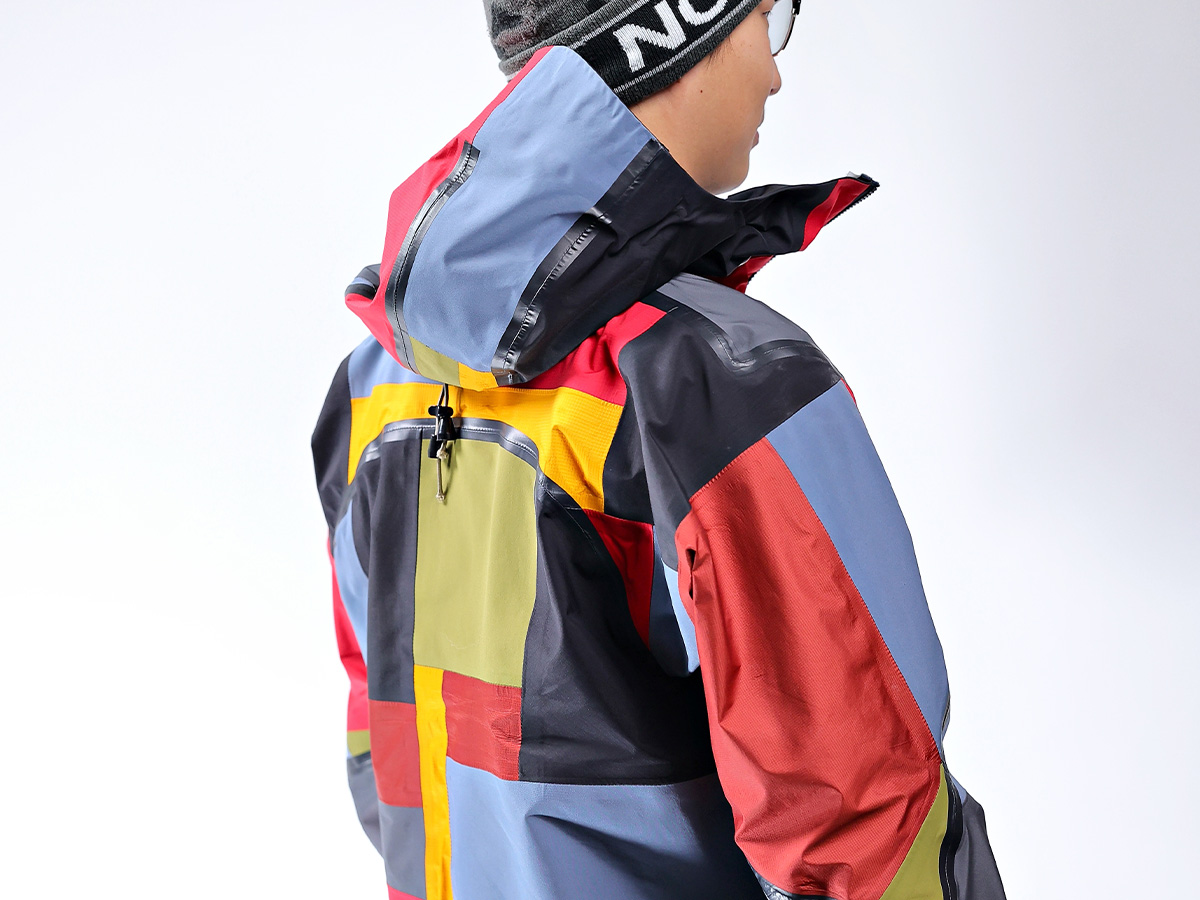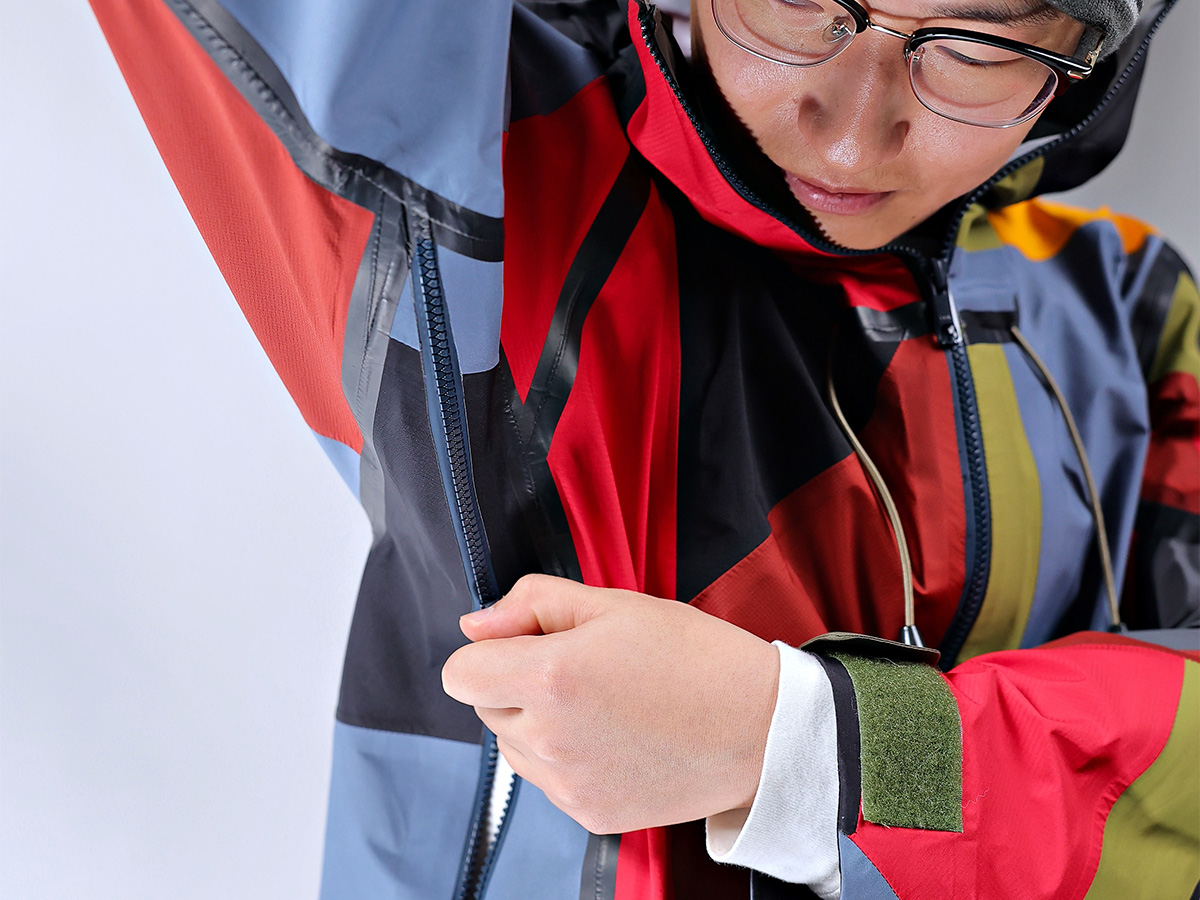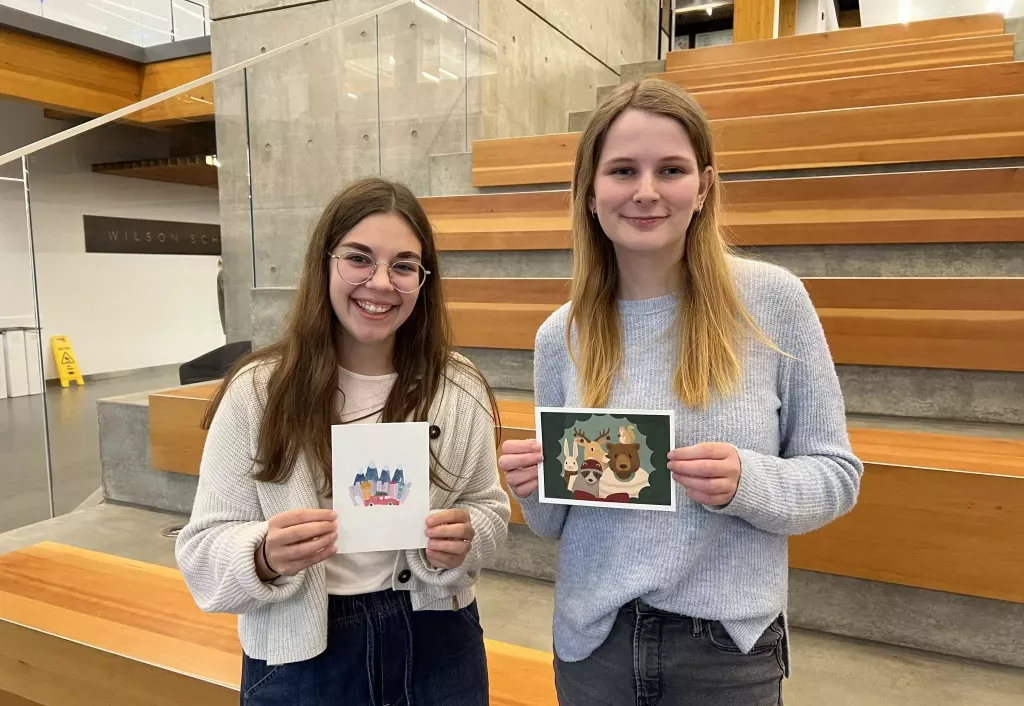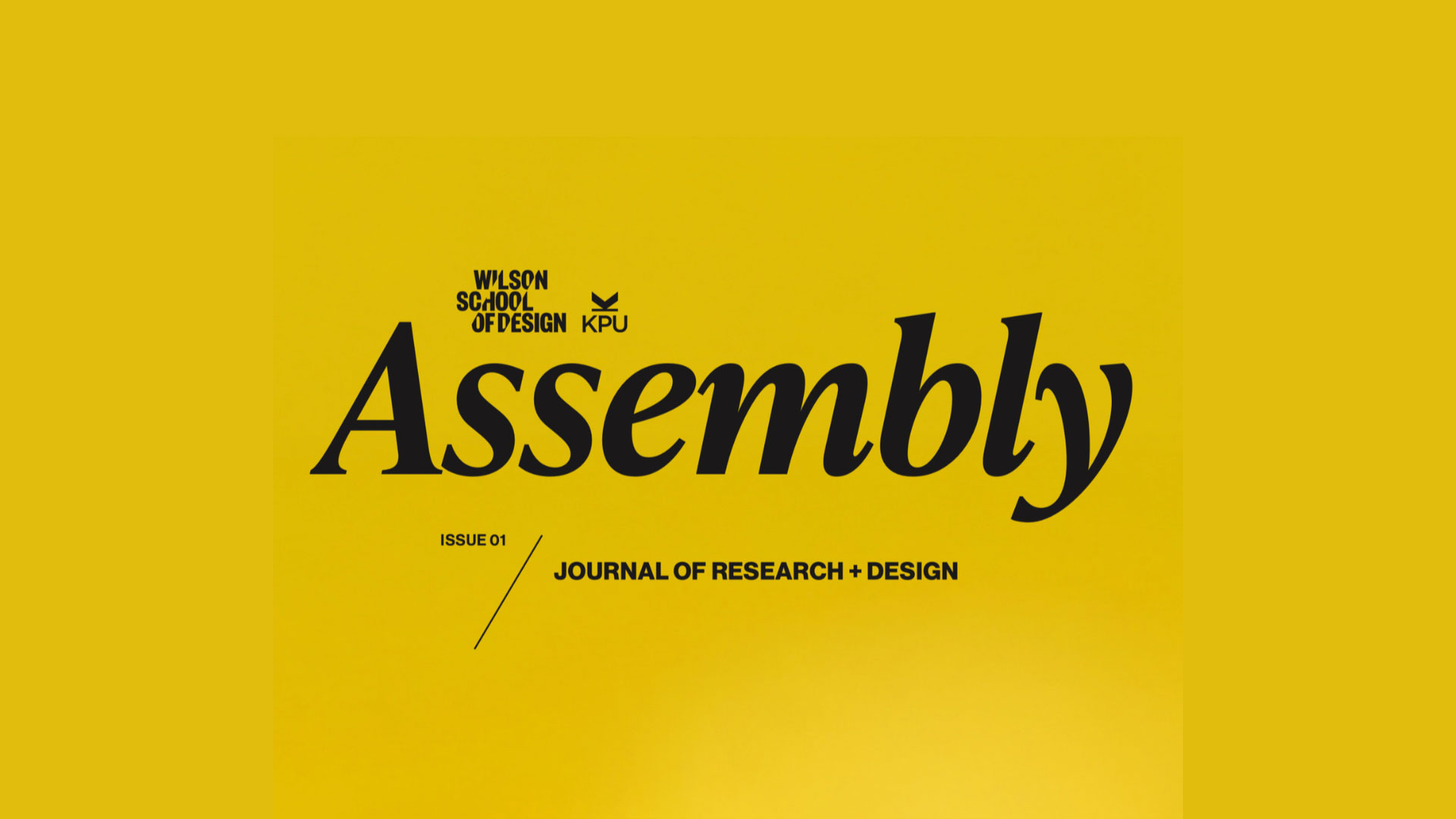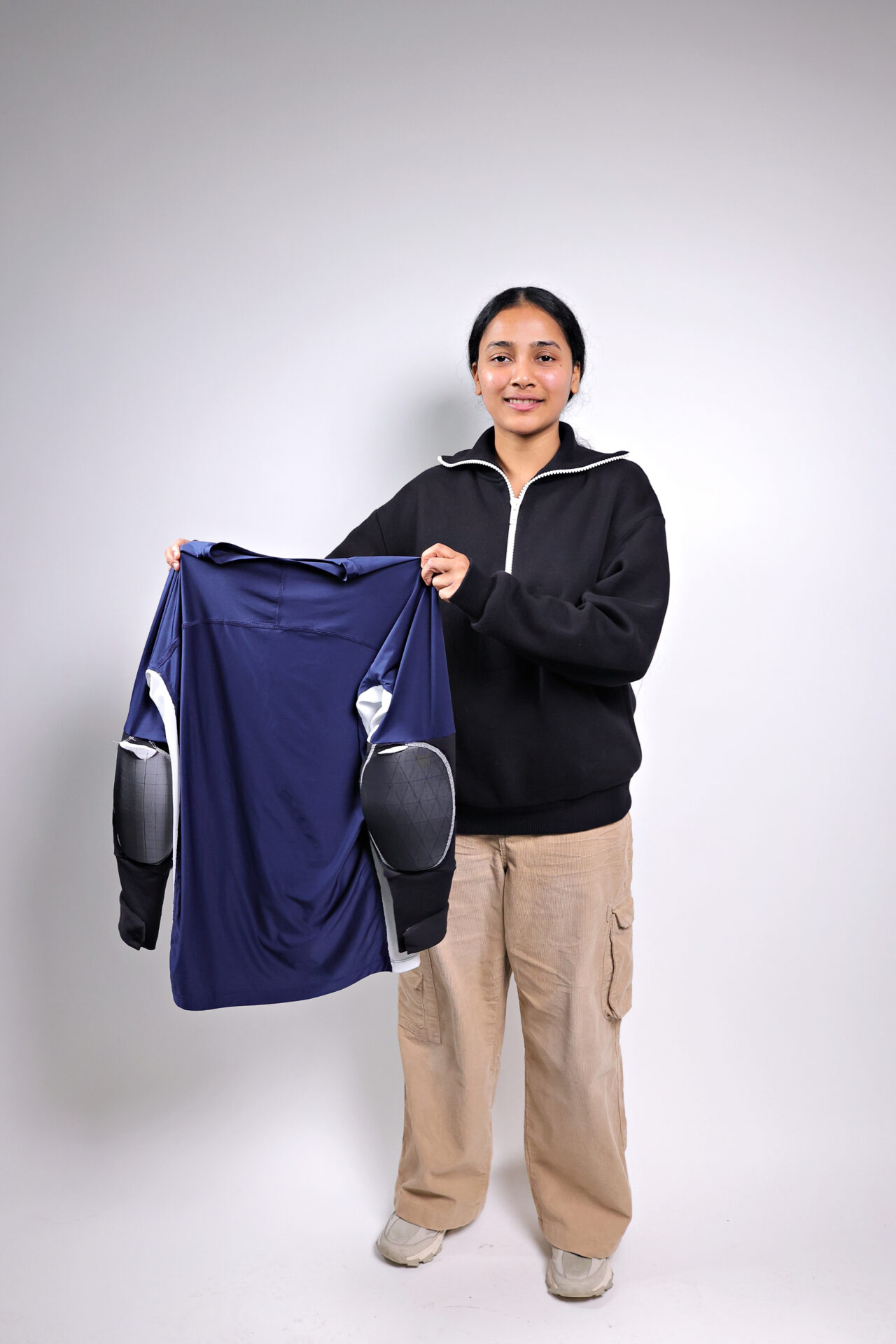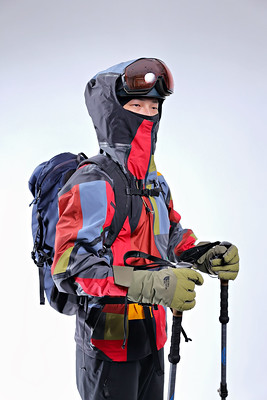Technical Apparel student Peter An used his research to design:
adaptable lightweight jackets that adjust warmth for areas with drastic temperatures or weather changes in the mountains.
“Throughout this course, I began by conducting initial research, which helped me establish a foundational understanding of my project’s direction. With a clearer vision, I developed a solution for my chosen topic and proceeded to source materials and create prototypes. The early stages involved patterning the jacket—a process that required significant time and precision due to the complexity of the design. Additionally, sourcing components proved challenging, as very few ready-made options were available. This forced me to adapt, spending considerable effort modifying and testing materials until they functioned as needed.”
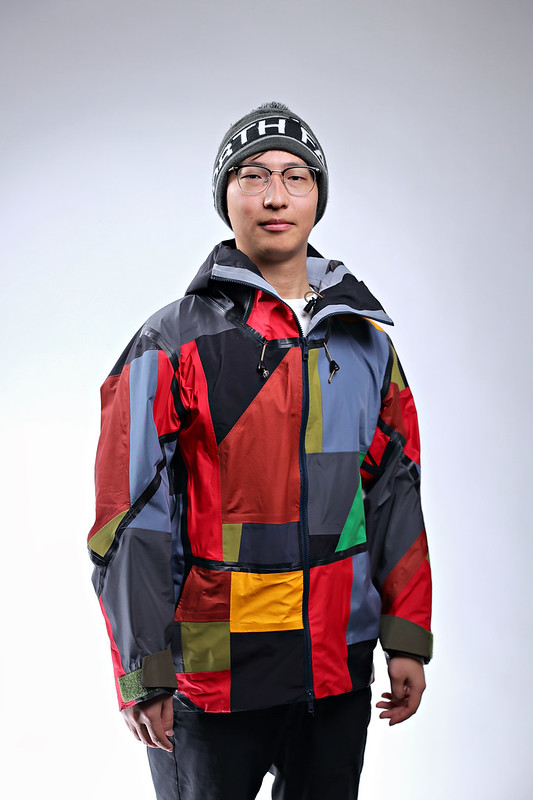
This adaptable, lightweight jacket project could significantly improve outdoor safety by helping users regulate body temperature in unpredictable mountain weather. Its modular design reduces the need for bulky layers, cutting pack weight for hikers and climbers. If developed sustainably, it could also lessen textile waste in the outdoor gear industry. Commercially, the jacket may disrupt the performance apparel market, inspiring similar innovations. Future integration of smart textiles could push boundaries in wearable tech. Additionally, local production might create jobs, while the project’s research could influence textile engineering education. Ultimately, the jacket addresses real-world needs—enhancing comfort, sustainability, and functionality in outdoor gear.
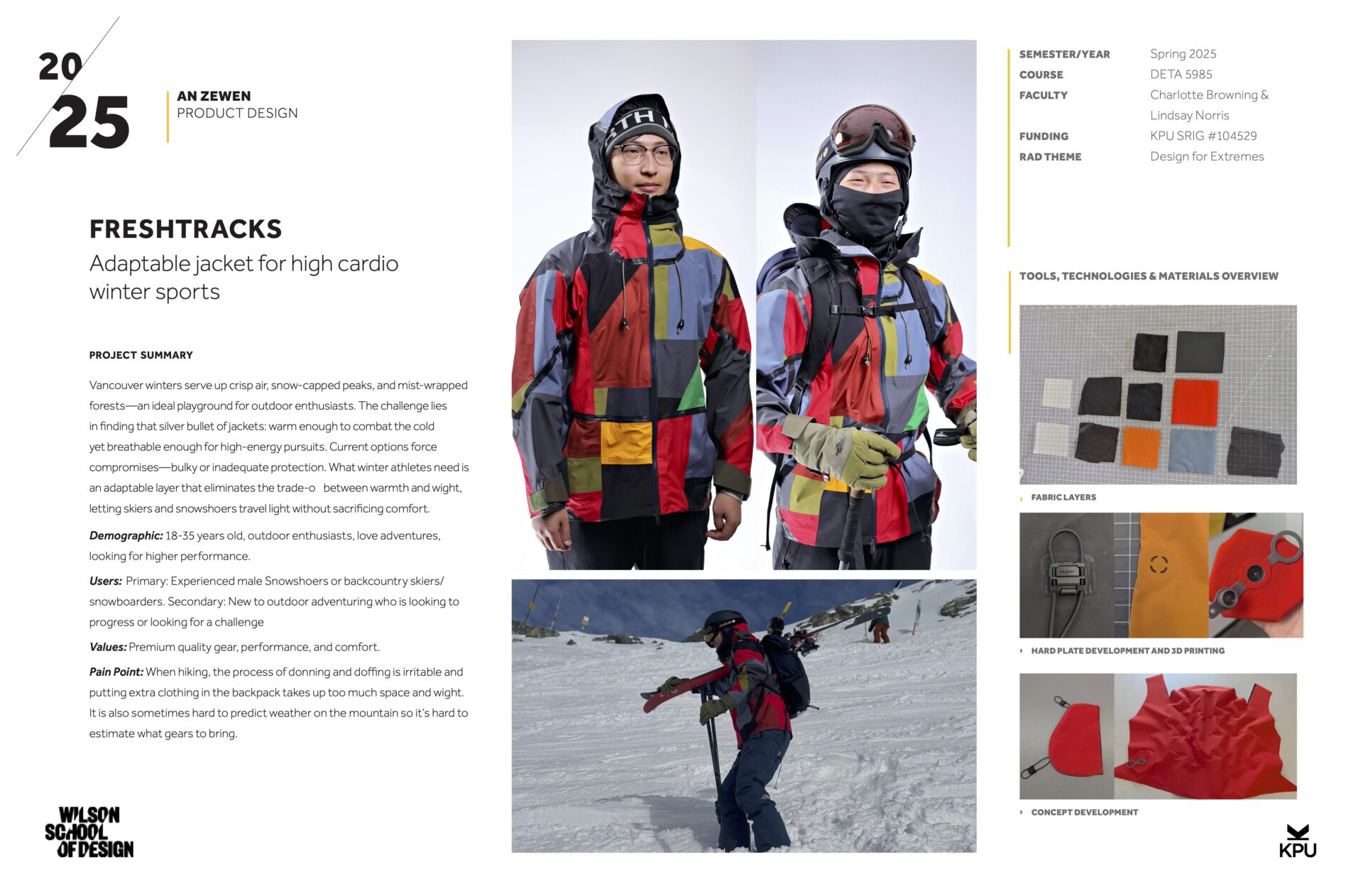
Research at the KPU Wilson School of Design creates evidence-led solutions. We work with companies, organizations and institutions in a collaborative process to design and deliver solutions for complex and evolving challenges.
Supervisor: Lindsay Norris
UN Goals: 3, 9, 11
Program: Technical Apparel Design
